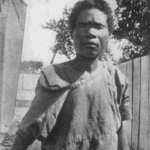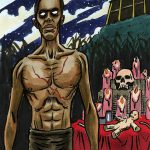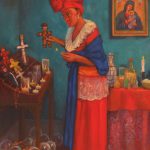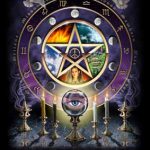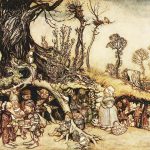Santería is a syncretic religion of West African (especially Yoruba) and Caribbean origin influenced by Roman Catholic Christianity. Santeria means “the worship of the saints.” It is also called La Regla Lucumi and the Rule of Osha. Its liturgical language, a dialect of Yoruba, is also known as Lucumi.
Santería was a secret religion for decades, but has since revealed itself. Santeria is most popular in Cuba, but has spread to other countries, Puerto Rico, Dominican Republic, Panama, Colombia, Venezuela, and the United States, mainly as a result of mostly Cuban and Puerto Rican migration. There are believed to be 300,000 practitioners of Santeria in New York alone.
Beliefs
Santeria encourages building relationships with orishas or spirits that are manifestations of the supreme and unreachable God: Olodumare. Orishas help people throughout their daily lives. They also help people reach their fates which have been pre-planned by Olodumare. In turn, people must worship orishas so that the spirits would keep on existing, because orishas are not immortal.
Each orisha has an associated Christian Saint, a principle, important number, color, food, dance posture and emblem. Saint Barbara in Santeria is connected to fire and lightening. Orishas need food in the form of animal sacrifice, and prepared dishes, as well as human praise in order to remain effective. Ancestors, called Ara Orun (People of Heaven) are referred to for moral guidance and example. Their names are recited at family ceremonies.
Rituals
It is mandatory for Santeria followers to partake in various rituals in order to stay in touch with orishas. They often wear white as a symbol of purity. A ritual typically begins with the invocation of Olurun. Drums provide background African rhythms. The Oru or rhythm changes to that associated with a specific Orisha, who is then invoked as well. Animals, most commonly chickens, are sacrificed during many rituals. The animal’s blood is collected and offered to the Orisha. Their sacrifice is believed to please the Saints, and to bring good luck, purification and forgiveness of sins.
Rhythmic sounds and feverish dancing during Santerian rituals are believed to lead to possession of the individual by the particular Orisha being invoked. The individual then speaks and acts as the Orisha.
Priesthood
A senior male priest, a babalawo, can predict the future by using an ekwele chain. Santeria priests also provide support to the sick. They have a wealth of knowledge on the medicinal properties of herbs, holy water, and natural elements, as dictated by Catholic and African belief systems. Botanicas are stores that specialize in providing Santerian supplies. They sell charms, herbs, potions, musical instruments, and other materials used by the followers.


